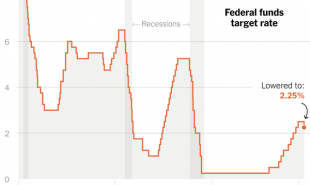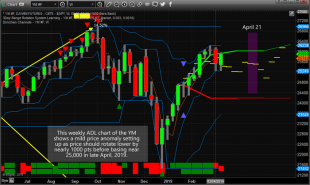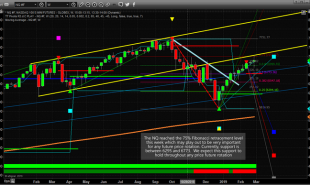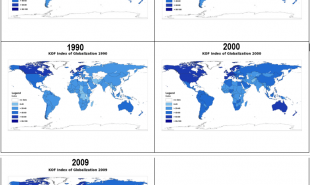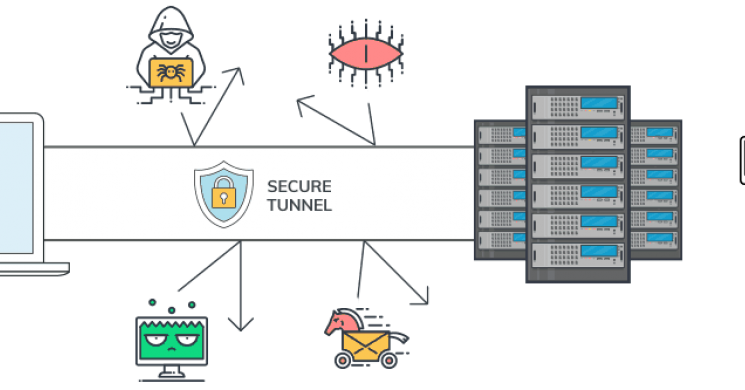
Commentary courtesy of VPNGeeks
The internet can be a scarey place if you don't protect yourself from cyber threats. Using a VPN is a viable solution to protect your personal data. However, understanding the ins and outs can be complex.
The importance of using a VPN cannot be stressed enough, especially in our modern internet era. Originally designed to be used by businesses, a VPN has more recently become an essential tool for the everyday internet user.
In this guide we break down how a VPN works and what to look for in your VPN provider.

Surfing the internet without a VPN leaves you exposed to a vast array of cyber threats. Therefore, a VPN is highly recommended for anyone and everyone who uses the internet on their smartphone, tablet or PC. Every device should be secured by a VPN to stop hackers getting access to your private data or installing malicious files on your device.
A Brief History of the VPN
The term VPN is an acronym for “Virtual Private Network”. A VPN was originally created for business’ and large corporations who needed their employees to connect to a computer that was not located in their office. Initially, the VPN originated in Microsoft in 1996 when one of their employees created and developed the peer-to-peer tunneling protocol or PPTP.

PPTP was created as a protocol to keep data private and secure. From there the PPTP developed into the VPN. A VPN is designed to improve the security of your connection to the internet. There are now various types of VPN’s that we will explore later on in this article. Ultimately all VPN’s provide the ability to create a private connection over a public connection (to keep your data and activity private).
Today, VPNs are used widely as a tool to stay safe and secure online. People use them for a wide range of reasons, from getting access to Netflix releases (ahead of their actual release date in their country), overcoming censorship and geo-restriction issues, to preventing malware. Since the beginning of 2000, when the internet became more widely accessible, thanks to the explosion of the presence of the smartphone – there has been a lot of public concern over data security.
VPN’s for Business
Inside companies that don’t use the internet (virtually unheard of these days), that have an internal server, data is kept secure. In this scenario, the company has its own internal private network. There is no way that a hacker can penetrate the internal server, as there are no points of access.
However, when we connect to the internet we begin to risk exposing ourselves to privacy and security holes. Every piece of data (eg. A picture, words, passwords or videos) is shared as a “data packet” and can be read by anyone who hacks into the public network.

Data Packets are Transferred Like Cable Cars
At first, the solution was simple: keep data inside the company. However, as companies have become more international, and their information is shared widely across the internet, cyber-crime has increased. If a company opens offices in other regions or countries, they will require to send sensitive data to their colleagues that are not based in the same physical location. To ensure that data is kept secure a company can deploy a VPN.
How does a VPN work?
When using the internet, we see various websites, apps, and videos as images and sounds. However, they are actually transferred via a string of digits. These digits are called “data packets”. Our computer (or device) translates these data packets into the many visual and audible pieces of content that we consume on a daily basis when surfing the web.
When we send data packets via a public network, our data is completely exposed and available to anyone who might want to access it. This includes ISPs (Internet service providers) companies, marketers, hackers or governments, who can interfere with what you see and also get full unrestricted access to your data and activity when browsing the internet.

As you can imagine, this is not a very secure position, and our data is then open to interpretation and manipulation by external parties. A VPN solves this problem by offering a secure “virtual” private network (like the ones used by internal companies). The way a VPN works is by encrypting the data packets. This means that that the data that you transfer is jumbled up and no longer understandable to anyone who might intercept your connection to the internet.
A VPN creates a secure pathway (known as a tunnel) for you to send and receive data. The data is both encrypted and passed through a tunnel. This allows you to unblock restricted websites and surf the web safely.
What is a VPN Tunnel?
A VPN tunnel is a term used to explain the protocol that creates the connection between you and the internet. The tunnel by itself is not a VPN because the data must first be encrypted (scrambled) prior to being sent through the tunnel.
A VPN tunnel encapsulates your data, creating a virtual “tunnel” to keep your data safe from prying eyes.
So, when you send or receive any data from the internet your VPN will provide a tunnel for the data to pass through from your device to the internet. There are various different tunneling protocols deployed by VPNs that vary in the level of security that they provide. The tunneling creates a virtual cable that you can use to pass data through securely: preventing people or computers from viewing your online activity.
A VPN Has 3 Key Parts
Like I said earlier, a VPN is not just a tunnel, there are other moving parts that are required to secure your data on a VPN. These are security protocols, encryption, and servers.
1. Security Protocols
Security protocols are used by a VPN to protect all of the data that passes through the servers. There are a variety of protocols used by VPNs to secure data as though it were an actual physical private network. Currently, OpenVPN is widely accepted as the best security protocol to deploy.
2. Encryption
Encryption basically jumbles up the sequence of digits in a data packet, to make it impossible to decipher. This means that even if anyone were to gain access to your data, they couldn’t understand it. VPNs use standard modes of encryption known as the Advanced Encryption Standard.

AES 256-bit is currently regarded as the best method of encryption. AES 128-bit is also very commonly used, but it is not as secure as AES256-bit. The numbers 128 and 256 are the key length and the number of combinations in the key.
The larger the number, the more combinations that the computer has to come up with to get access to the key, therefore – the higher the number, the more secure the encryption method.
3. Location of Servers
When searching for a VPN you will notice that they always state the number of servers that they have and where they are located. The reason for this is due to speed and access. To understand this properly it is easy to understand that the closer the server location, the quicker the data transfer.
When we don’t use a VPN we send our IP address to a server and request access to their files or website. This information is then relayed to our computer or device.

However, when using a VPN there is an extra step that is required. Firstly we must send our data to the VPN server prior to it going to the website that we want to view. When we request data from a server (or website) then this is called pinging. We ping a server by sending our data to it, and then we interact with the website a bit like a conversation. There is a continual interaction of data being sent back and forth.
When we use a VPN this relationship changes, instead of us sending information to a website (or server) we only send our data to the VPN. The VPN works as your virtual security guard. The data sent from your device to the VPN is also encrypted and sent through a tunnel. The end result is that you are never left exposed. Your data never reaches the website that you are trying to reach, thus allowing you to surf the web anonymously.
It is important to ensure that your chosen VPN has provisions in place for leaks and that they don’t keep any logs. This will further ensure that you can browse the web freely.
What are the benefits of using a VPN?
There are many benefits of using a VPN, in fact, I would go so far as to say, that using a VPN is imperative if you want to remain safe and secure online.
Below I will explain some of the many benefits of using a VPN.
-
View Blocked Content
There are quite a few reasons for companies to block access to content. Location is one reason, and it is not always meant as a harsh restriction. Sometimes programmers develop websites so that you will get redirected to your local version of their site. A good reason to do this is to change the language of a website, change the currency (to the local currency) or to show products from a relevant store near you.
However, there are other instances where your location alters what you see when surfing the web, that you might want to avoid. For example, Youtube and Netflix often block media that is only intended for a local audience. This can include releasing a movie in the US before it gets released in the UK (or any other country for that matter).
One great thing about using a VPN is that you can unblock geo-restricted content by using a server that is located in your desired location. For example, if a movie has been released in another country ahead of time, say the US (as per my previous example), then you can select a US server and then be granted access to that particular movie.

The Chinese government has banned sites such as Youtube, Facebook, and Gmail for its citizens
Another example of geo-restricted content would be using social media in China. The Chinese government has banned sites such as Youtube, Facebook, and Gmail for its citizens. This can be particularly frustrating when traveling or on holiday in China. However, if you use a VPN you will be able to browse the internet as though you are in another country and then gain unrestricted access to banned sites.
Other Blocked Websites
Employers, schools or colleges often block access to specific websites in a bid to increase concentration. This can include banning sites like facebook or twitter when using your employer’s wifi. However, if you use a VPN you can get around this restriction and visit any site on the internet. Censoring is widely deployed all around the world, altering how and what you can see online. VPNs are often installed to get around the very many restrictions that can be placed on you by third parties.
2. Anonymous IP Address
When you are using the internet you need an IP address. This can be static or dynamic and it can reveal a lot of information about your location. When using a VPN your IP address is hidden and therefore your actual location is not disclosed. It is really important for people to keep their privacy intact when using the internet. This can stop cybercrime, targeted marketing and other more serious intentions of third parties who can use your IP address to track you down.
Furthermore, when hiding your IP address and surfing the web anonymously, you stop your activities being tracked. This can then alter the digital footprint (data gathered on your habits and activity online) that is built up about you. This can be important to people for all sorts of reasons. Not least the fact that what you see online when you have a significant digital footprint is completely different to what you will see when browsing anonymously. Meaning that you get to decide what you look at, rather than marketers and third parties altering the online terrain for their benefit.
3. Visit Torrent Sites
It is common for governments to ban torrenting sites to stop people from distributing stolen media or other cybercrime. However, when using a VPN you can access torrenting sites freely.
4. VPNs Can Save You Money
Alright, this one is pretty cool. Did you know that you can actually save a tonne of money by using a VPN?
Websites change what you see in accordance to data that they gather about you. This can be if you have previously visited the website if you have bought from them in the past or it can even change depending on your location.
Changing your IP address can change the price ticket on many items that you buy online. Some items that you can save significant sums of money on are hotels and flights. This is done by changing your IP to a lower income country or to one in which there is currently a discount or promotion on. For example, you could search via an American IP to find Thanksgiving sales or to the UK for Black Friday deals.
5. Torrenting with a VPN
Many countries have banned torrenting to protect copyrighted material. By using a VPN you can gain access to torrent sites and freely download from them. However, there are some countries in which torrenting is still acceptable. When using a VPN from a country that has not banned torrenting, you can gain access to these sites.
ISPs have automatic methods to tell if you are torrenting and can slow down or stop you from downloading material from torrent websites. However, if you use a VPN, your activity is not exposed and you can download freely from a torrent site.
6. Encrypted Data
Encrypting your data can seriously impact your safety when online. For this reason, encryption is a key part of a VPN’s service. It is really hard to gain access or hack into a VPN, however, it can be done. On the rare occasion that this happens, having encrypted data will keep you safe. You can therefore freely use the internet safe in the knowledge that you cannot be tracked or traced. This comes in handy when using the internet in public locations, where you are even more vulnerable to hackers.
How to choose the best VPN
It is important to know what to look for in a VPN prior to choosing the best VPN to suit your needs. VPN providers differ greatly, for this reason, I have outlined what to look for in a VPN.
Speed
Speed is important when choosing the best VPN because you really don’t want to be waiting forever for a page to load, nobody has time for that these days! Additionally, when streaming videos it is really important to be able to do it end-to-end without any lag time. For this reason, it is really important o choose a VPN that is fast. There is no use in surfing the web anonymously and increasing your safety if the experience is sub-par.
Number and location of servers
When selecting the best VPN it is really important to check the number of servers that they have and the location of the servers. As a general rule of thumb, look for a VPN that has a lot of servers all around the world.

The more servers that they have means that they will be less busy. This can result in a bottleneck and a slower service. The servers should be located all around the world to ensure speed and freedom.
Unlimited Bandwidth
The best VPNs offer unlimited bandwidth. This allows you to browse, post and download content freely. There is no point in having a secure connection if it is restricted by bandwidth. The idea with a VPN is that it offers you ultimate freedom to use the internet as you see fit. Therefore when selecting a VPN ensure that they offer unlimited bandwidth as standard.
Be Aware of VPN blocks
There are many sites that are blocked and even sites that have a VPN block to stop you viewing their content. Netflix is one such site that people often try to access using a VPN. Netflix have gotten wise to people using VPNs and have many VPN blocks in place. Therefore to ensure that you get access to sites like Hulu and Netflix you need to make sure that you VPN provider has servers in the USA that don’t have a VPN block on them.
Strong Security Protocols
When selecting your VPN it is super important to make sure that your provider has military grade encryption, a no-logs policy and tight security protocols. This should include having systems in place to ensure that they can ward off any leaks.

Many of the VPN providers lease servers and this can lead to a less save VPN environment. Mainly because the host cannot respond fast enough to the end users requirements. The fact that some VPN providers don’t have full access to the servers that they lease means they cannot ensure a strong security protocol and network.
P2P and Torrenting
If you might want use torrent websites or P2P, it is important to check with your VPN to find out if it is something that they support. Torrenting is allowed on some VPN’s but not all. Check that your VPN allows both P2P and Torrenting if that is a service that you require. P2P stands for Peer to Peer and it basically means that you can share files between two computers without passing the data on to a server. P2P is useful for sharing all sorts of resources, which can be useful for collaboration. However, often both P2P and torrenting are used to distribute copyright content, and for this reason they are not allowed on all VPNs.
All in All
I hope that you have learned a lot about VPNs, the importance of them and also what to look for when selecting one to fit your needs. Make sure to remember that not all VPNs are the same, and you should make sure to do your homework before selecting one.
Read more by MarketSlant Editor


